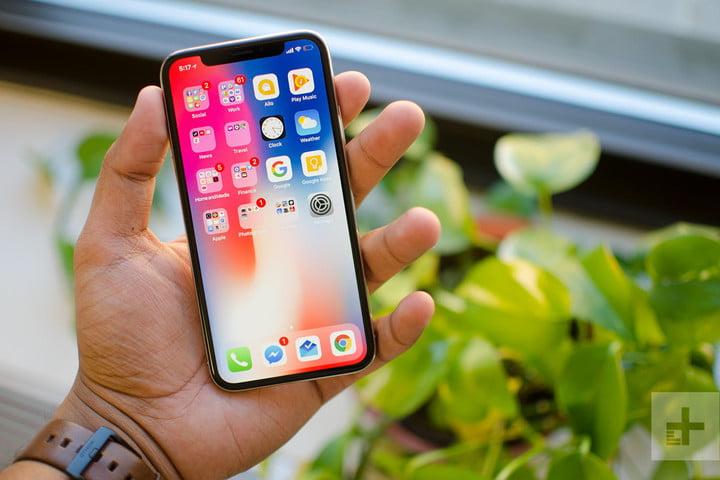With the launch of the iPhone X , facial unlocking — that is, the ability to unlock your smartphone with nothing more than your smile — has become more and more mainstream. Because of this, other manufacturers are beginning to place the feature at the forefront of their ad campaigns, taking a cue from Apple’s marketing push.
Samsung, for instance, recently launched Intelligent Scan on the Galaxy S9 and S9 Plus , combining the company’s iris-scanning technology with a facial unlock feature. Basically, the built-in cameras on the S9 and S9 Plus scan your iris, then utilize the aforementioned facial unlock feature if they can’t properly identify you with the former piece of tech. This happens within milliseconds, though, meaning you don’t really have to worry about your phone swapping between the two security measures.
But how does Samsung’s latest security tech compare with Apple’s?

In order to determine which is faster, we recently devised a little experiment. Digital Trends contributor David Cogen set up his face in both Intelligent Scan and Face ID at roughly the same time, preventing any discrepancies that might arise from photos taken at different time periods. Then, he tested the features in several scenarios, allowing him to see which feature is quicker in a side-by-side comparison.
First, he tested each feature in a well-lit room. The iPhone X came out on top by about a third of a second, regardless of whether he wore glasses or removed them from his face. The X was also quicker when working with sunglasses — it beat the S9 by more than a second — and nearly twice as fast when used in the dark. This is to be expected because the X has specific hardware built in for facial recognition, whereas the S9 doesn’t (at least, not really).
So, while Apple’s headset is faster when it comes to unlocking your phone via facial recognition, the S9 still performs admirably given it lacks the aforementioned, specialized hardware. The fact that setting it up is a breeze just makes Samsung’s counterpart even more welcome.
David Cogen — a regular contributor here at Digital Trends — runs TheUnlockr.com , a popular tech blog that focuses on tech news, tips and tricks, and the latest tech. You can also find him over on Twitter discussing the latest tech trends.


